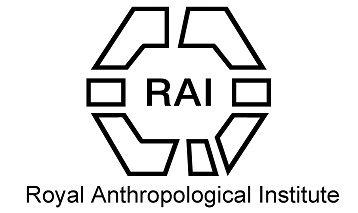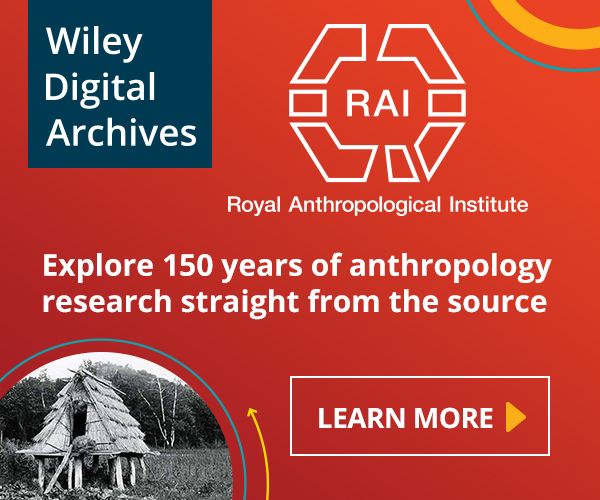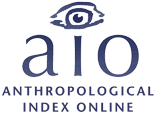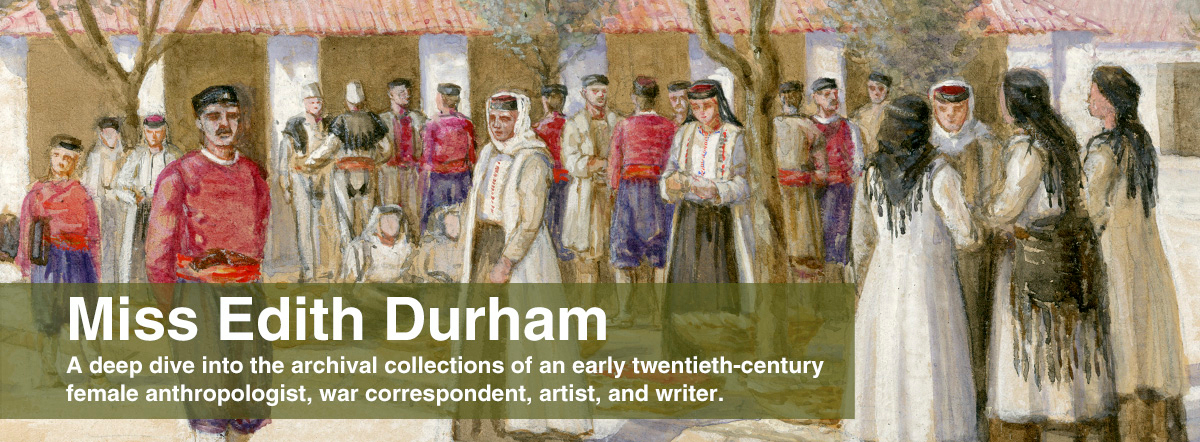Room Hire Article Count: 1
The RAI has a large room for hire. Recently refurbished, it takes up to 40 persons seated, and is served by an adjoining room where there are tea and coffee facilities. A very pleasant space, with floor to ceiling windows, and original shutters, it is available subject to availability for £350 per day to education, charitable and related foundations for meetings during normal office hours (10.00-5.00pm). Usual projection facilities are present, including wireless internet access.
For enquiries, please contact info@therai.org.uk.





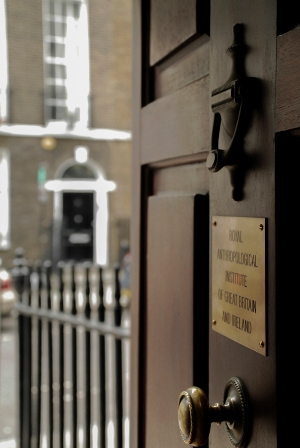
Joining Article Count: 11
Many people from all over the world are affiliated to the RAI. We welcome anyone with an interest in the subject, whether working in an academic institution or not. Our affiliates include academic specialists, students, those working in fields where anthropology has practical applications, and those whose interest is captured by the subject matter of anthropology. The membership structure has been designed as far as possible to suit all interest groups. The RAI is constantly looking for ways of improving its structure and services, and welcomes all suggestions.
In this section:

Front Page Article Count: 0
Front Page Article Count: 1
AT Article Count: 1
VacancyLink Article Count: 6
VacancyLink - Vacancies advertised under Anthropology Today
Vacancies advertised in Anthropology Today are included here after the issue in which they appear has gone to press. See our rates for further information. Are you in a hurry? If you cannot wait for the print issue, we can still feature you in this column. In our rates' page search for "Rates for web-only adverts" and contact us via email. Please mention Anthropology Today when responding. The adverts below are classified by deadline order.
Notes to Contributors Article Count: 1
Advertising Article Count: 2
CourseLink Article Count: 1
CourseLink - Courses advertised under Anthropology Today
Courses advertised in Anthropology Today are included here after the issue in which they appear has gone to press. See our rates for further information.
Are you in a hurry? If you cannot wait for the print issue, we can still feature you in this column. In our rates' page search for "Rates for web-only adverts" and contact us via email. Please mention Anthropology Today when responding. The adverts below are classified by deadline order.
Contact Us Article Count: 0
Contact Us Article Count: 4
Awards Article Count: 0
 The RAI administers a number of trust funds from the income of which it is able to award Fellowships at postdoctoral level in partnership with host universities, and limited financial support to postgraduate students of anthropology. The Institute also has honours, medals and prizes at its disposal, which are awarded in recognition of achievement of the highest order in anthropology. Details are listed on these pages. Enquiries should be addressed to the Assistant Director (Administration).
The RAI administers a number of trust funds from the income of which it is able to award Fellowships at postdoctoral level in partnership with host universities, and limited financial support to postgraduate students of anthropology. The Institute also has honours, medals and prizes at its disposal, which are awarded in recognition of achievement of the highest order in anthropology. Details are listed on these pages. Enquiries should be addressed to the Assistant Director (Administration).
In this section:
Research Grants Article Count: 3
Those research grants administered by the Royal Anthropological Institute are advertised regularly in Anthropology Today the Institute's bi-monthly journal.
Fellowships Article Count: 2
Prizes Article Count: 6
Prizes awarded by the Royal Anthropological Institute
The Institute awards nine prizes, four of which are in the field of ethnographic film. These are advertised regularly in Anthropology Today, the Institute's bi-monthly journal.
Honours Article Count: 12
The Royal Anthropological Institute has six honours and distinctions at its disposal. These awards are announced in Anthropology Today.
Awards Forms Article Count: 8
Past Awards Article Count: 103
-
Arthur Maurice Hocart Prize and RAI Student Essay Prize (Annual)
-
J.B. Donne Essay Prize on the Anthropology of Art (Biennial)
-
The Wellcome Medal for Anthropology as Applied to Medical Problems (Biennial)
Conferences Article Count: 3
 The Royal Anthropological Institute organises occasional one day conferences on specific topics. In June 2012 we launched our major conference programme with Anthropology in the World. This was followed by Anthropology and Photography in May 2014, Anthropology, Weather and Climate Change in May 2016, Art, Materiality and Representation in June 2018, Anthropology and Geography: Dialogues Past, Present and Future in September 2020, Anthropology and Conservation in October 2021, Mobilising Methods in Medical Anthropoology in January 2022, Anthropology, AI and the Future of Human Society in June 2022 and Anthropology and Education coming up in June 2024.
The Royal Anthropological Institute organises occasional one day conferences on specific topics. In June 2012 we launched our major conference programme with Anthropology in the World. This was followed by Anthropology and Photography in May 2014, Anthropology, Weather and Climate Change in May 2016, Art, Materiality and Representation in June 2018, Anthropology and Geography: Dialogues Past, Present and Future in September 2020, Anthropology and Conservation in October 2021, Mobilising Methods in Medical Anthropoology in January 2022, Anthropology, AI and the Future of Human Society in June 2022 and Anthropology and Education coming up in June 2024.
Anthropology in the World Article Count: 2
Royal Anthropological Institute / British Museum Centre for Anthropology
ANTHROPOLOGY IN THE WORLD
BRITISH MUSEUM, CLORE CENTRE, 8th to 10th JUNE 2012
The Royal Anthropological Institute is pleased to announce that a conference ‘Anthropology in the World’ will take place at the British Museum, Clore Centre, in conjunction with the BM Centre for Anthropology. The aim of this conference is to explore the manifold ways in which anthropology in its widest sense has been influential outside academia. It is aimed therefore at having a widespread appeal to the general public and to those anthropologists who are working in careers outside the university. We hope too that it will be of interest to academic anthropologists who are interested in the way that their subject is diffused and used in wider society, and to those students who are interested in applying their anthropological skills outside the academic arena.
You can view a short film about the conference here. You can also view Gillian Tett's keynote lecture here.
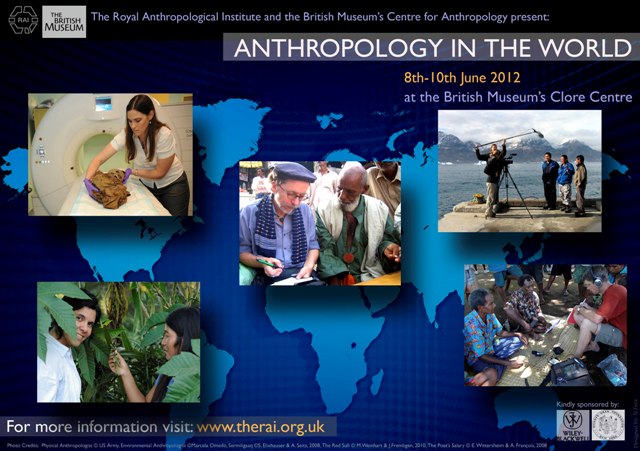
timetable:
Call for Panels opened: 17th August 2011; Call for Panels closed: 28th October 2011
Call for papers opened: 11th November 2011; Call for papers closed: 16th January 2012.
Registration opens 14th February 2012.
Conference Fee:
Non-Fellow: £170
RAI Member: £150
RAI Fellow: £90
Concessions: £70
RAI Student Fellow: £50
With thanks to our sponsors for their contributions;




RAI Student Conference Article Count: 13
Royal Anthropological Institute Student Conference
The RAI holds an annual student conference in collaboration with a UK university department every year.
The next conference is planned for September 2019 at the University of Oxford.
Past Conferences
RAI First Annual Postgraduate Conference - Durham University, 20 September 2011, a Special Edition of the Durham Anthropology Journal is dedicated to the conference. This can be read here.
Breaking Bubbles: Anthropology for our Future (RAI Undergraduate Conference) - University of Kent, 3-4 March 2012
RAI Second Annual Postgraduate Conference - University of Kent, 13 September 2012
Closer Encounters: Bringing Anthropology Home (RAI Undergraduate Conference) - University of St Andrews, 12-13 April 2013
RAI Third Annual Postgraduate Conference - University of Aberdeen, 28-29 October 2013
RAI Fourth Annual Postgraduate Conference - Brunel University, 3-4 September 2014
RAI Fifth Annual Postgraduate Conference - University of Manchester, 4-5 June 2015
RAI Sixth Annual Student Conference - Oxford Brookes University, 18 May 2016
RAI Seventh Annual Student Conference - Durham University, 20-22 April 2017
RAI Eighth Annual Student Conference - University of Bristol 13-14 September 2018
RAI Ninth Annual Student Conference - University of Oxford 11-12 September 2019
Anthropology and Photography Article Count: 10
British Museum, Clore Centre, 29-31 May 2014
The Royal Anthropological Institute is pleased to announce that a conference ‘Anthropology and Photography’ will take place at the British Museum, Clore Centre, in conjunction with the museum’s Department of Africa, Oceania and the Americas. The aim of the Conference is to stimulate an international discussion on the place, role and future of photography. Panel proposals are therefore welcome from any branch of anthropology.
Call for Panels and Papers
We welcome contributions from researchers and practitioners working in museums, academia, media, the arts and anyone who is engaged with historical or contemporary production and use of images.
Panels can draw upon (but are not limited to) the following themes:
- The use of photography across anthropological disciplines
- The changing place of photography in museums and exhibitions
- Photography and globalisation
- Photography, film and fine art
- Revisiting and re-contextualising archival images
- Photography and public engagement
- Ethics, copyright, access and distribution of images
- Technological innovation and its impact
- Regional photography practices
- Visual method and photo theory
The call for panels opens on 1 August 2013 and closes on 31 October 2013
The call for papers opens on 27 November 2013 and closes on 8 January 2014
Conference Fee:
Non-Fellow: £170
RAI Member: £150
RAI Fellow: £90
Concessions: £70
RAI Student Fellow: £50
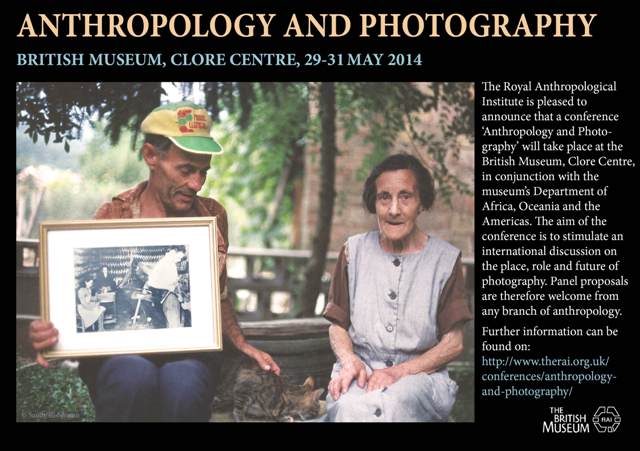
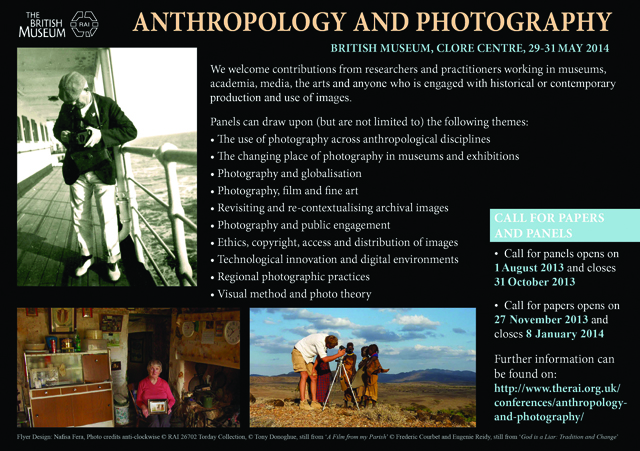
With thanks to our sponsors for their contributions;


Anthropology, Weather and Climate Change Article Count: 8
ROYAL ANTHROPOLOGICAL INSTITUTE AND THE DEPARTMENT OF AFRICA, OCEANIA AND THE AMERICAS OF THE BRITISH MUSEUM
Anthropology, Weather & Climate Change
The RAI is delighted to announce a major conference entitled "Anthropology, Weather and Climate Change" which will take place at the British Museum, 27-29 May 2016, organized in conjunction with the BM Department for Africa, Oceania and the Americas. We welcome proposals for panels on all aspects of this timely and complex issue.
Anthropology is understood here as being in its widest sense, including Archaeology, Biological Anthropology, Linguistic Anthropology and Social Anthropology.
A Climate Change Hub website has been developed following the conference.
Call for panels opens on 27 February 2015 and closes on 30 June 2015
Call for papers opens on 28 August 2015 and closes on 18 January 2016
Registration opens on 22 February 2016
Conference Fee:
Non-Fellow: £180
RAI Member: £160
RAI Fellow: £95
Concessions: £75
RAI Student Fellow: £50
With thanks to our sponsor:

Art, Materiality and Representation Article Count: 4
ROYAL ANTHROPOLOGICAL INSTITUTE, THE DEPARTMENT OF AFRICA, OCEANIA AND THE AMERICAS OF THE BRITISH MUSEUM AND THE DEPARTMENT OF ANTHROPOLOGY AT SOAS
Art, Materiality and Representation
BRITISH MUSEUM/SOAS 1st-3rd JUNE 2018
The conference was jointly organised by the RAI, the BM’s Department for Africa, Oceania and the Americas, and the Department of Anthropology at SOAS and held in the Clore Centre of the British Museum and the SOAS Paul Webley Wing of Senate House.
Informal enquiries may be made to admin@therai.org.uk
Call for panels opened on 21 April 2017 and closed on 30 June 2017
Call for papers opened on 29 August 2017 and closed on 8 January 2018
Registration opened on 22 February 2018 and closed on 3 June 2018
Conference Fee:
Non-Fellow: £190
RAI Member: £170
RAI Fellow: £95
Concessions: £80
RAI Student Fellow: £60
With thanks to our sponsors:


Practical information Article Count: 5
Please use the links above to navigate this section.
Anthropology and Geography: Dialogues Past, Present and Future Article Count: 17
ROYAL ANTHROPOLOGICAL INSTITUTE
Anthropology and Geography: Dialogues Past, Present and Future
14 - 18 September 2020
The Anthropology and Geography: Dialogues Past, Present and Future conference is jointly organised by the RAI, the RGS, the British Academy, the Department of Anthropology and Sociology at SOAS, and the BM’s Department for Africa, Oceania and the Americas. The conference took place online from 14-18 September 2020.
The RAI believes that anthropology and geography should be close, all the more so as the two disciplines have so much in common, both today and in the past. It hopes very much that through this conference, existing dialogues can be explored and further conversations take place on a host of vital issues including the Anthropocene, definitions of ethnology, methodology and fieldwork, contemporary understanding, education and public awareness, and the place of our disciplines in the modern world. We hope equally that this will lead to a shared intellectual understanding of our past and the emergence of the two disciplines, and an even closer engagement in the future, particularly in terms of emerging fields of mutual interest: e.g. digital media, geospatial mapping, and satellite photography.
Informal enquiries may be made to info@therai.org.uk
About the co-organisers:
The British Academy is the UK’s premier home for the humanities, with Fellows drawn from across the humanities and social sciences, particularly, as pertains to this conference, its Social Science Section ‘Anthropology and Geography’.
The British Museum is one of the world’s most renowned museums, with an interest in anthropology across all its curatorial departments, but associated especially closely with the RAI through the Department of Africa, Oceania and the Americas.
The Royal Anthropological Institute (RAI) is a renowned learned society devoted to anthropology. It has dedicated premises in Fitzroy Street in London, and is devoted to all the respective sub-fields of the discipline.
The Royal Geographical Society (with IBG) is a leading centre for geographers and geographical learning, supporting geography and geographers across the world.
SOAS University of London is a leading global institution for the study of Asia, Africa and the Middle East, and is associated with this conference most closely through its Department of Anthropology and Sociology.





Practical info Article Count: 3
Please use the links above to navigate this section.
Anthropology and Conservation Article Count: 17
ROYAL ANTHROPOLOGICAL INSTITUTE
Anthropology and Conservation
Virtual Conference
25-29 October 2021
We are very pleased to announce a major interdisciplinary conference on Anthropology and Conservation. The aim of the conference is simple: it is increasingly recognised that conservation can only be properly achieved with Indigenous Peoples, in full recognition of their rights. It is therefore urgent that we develop cross-disciplinary understanding not just of conservation, but also of the way that conservation and people go together. The conference will be held virtually. The conference was originally proposed by the University of East Anglia’s School of International Development, and we are pleased to welcome as co-organisers alongside UEA: Forest Peoples Programme, the Linnean Society, Royal Botanic Gardens Kew, the University of Kent’s School of Anthropology and Conservation, the Anthropology and Environment Society (a section of the AAA), Botanic Garden Conservation International, the Society of Ethnobiology and Cambridge Conservation Initiative.
Fellows and members of co-organising institutions will be eligible to join the conference at the RAI Fellows rate.
You can see a PDF version of the programme here.
The conference Whova page is here.
Informal enquiries may be made to admin@therai.org.uk
Call for Panels opens 18 January 2021 and closes on 12 March 2021
Call for Papers opens 19 April 2021 and closes on 9 July 2021
Registration opens 2 August 2021
Conference Fees:
Fellows & Members: £60
Non-Fellows: £120
Concessions (students, unemployed and retired persons): £30
Delegates with low income from Low Income Countries (https://g2lm-lic.iza.org/call-phase-iv/list-of-lic/): £15
About the co-organisers:
The Anthropology and Environment Society is a section of the American Anthropological Association.
Botanic Gardens Conservation International (BGCI) is a global botanic garden membership organisation and, with its members, forms the world’s largest plant conservation network. BGCI’s mission is to mobilise botanic gardens and engage partners in securing plant diversity for the well-being of people and the planet.
The Cambridge Conservation Initiative aims to transform the global understanding and conservation of biodiversity by catalysing strategic partnerships between leaders in research, education, policy and practice, to secure a sustainable future for biodiversity and society.
Forest Peoples Programme is a human rights organisation working with forest peoples across the globe to secure their rights to their lands and their livelihoods. We work alongside more than 60 partner organisations representing indigenous peoples and forest communities from across the globe.
The Linnean Society of London is the world’s oldest active society devoted to natural history.
The Royal Anthropological Institute (RAI) is a renowned learned society devoted to anthropology. It has dedicated premises in Fitzroy Street in London, and is devoted to all the respective sub-fields of the discipline.
Royal Botanic Gardens, Kew, is an internationally important botanical research and education institution.
The Society of Ethnobiology is a nonprofit professional organization dedicated to the interdisciplinary study of the relationships of plants and animals with human cultures worldwide, including past and present relationships between peoples and the environment.
UEA's School of International Development is committed to tackling global issues of poverty and inequality through our research, teaching and engagement.
The University of Kent School of Anthropology and Conservation is a multinational research community striving for real-world impact.

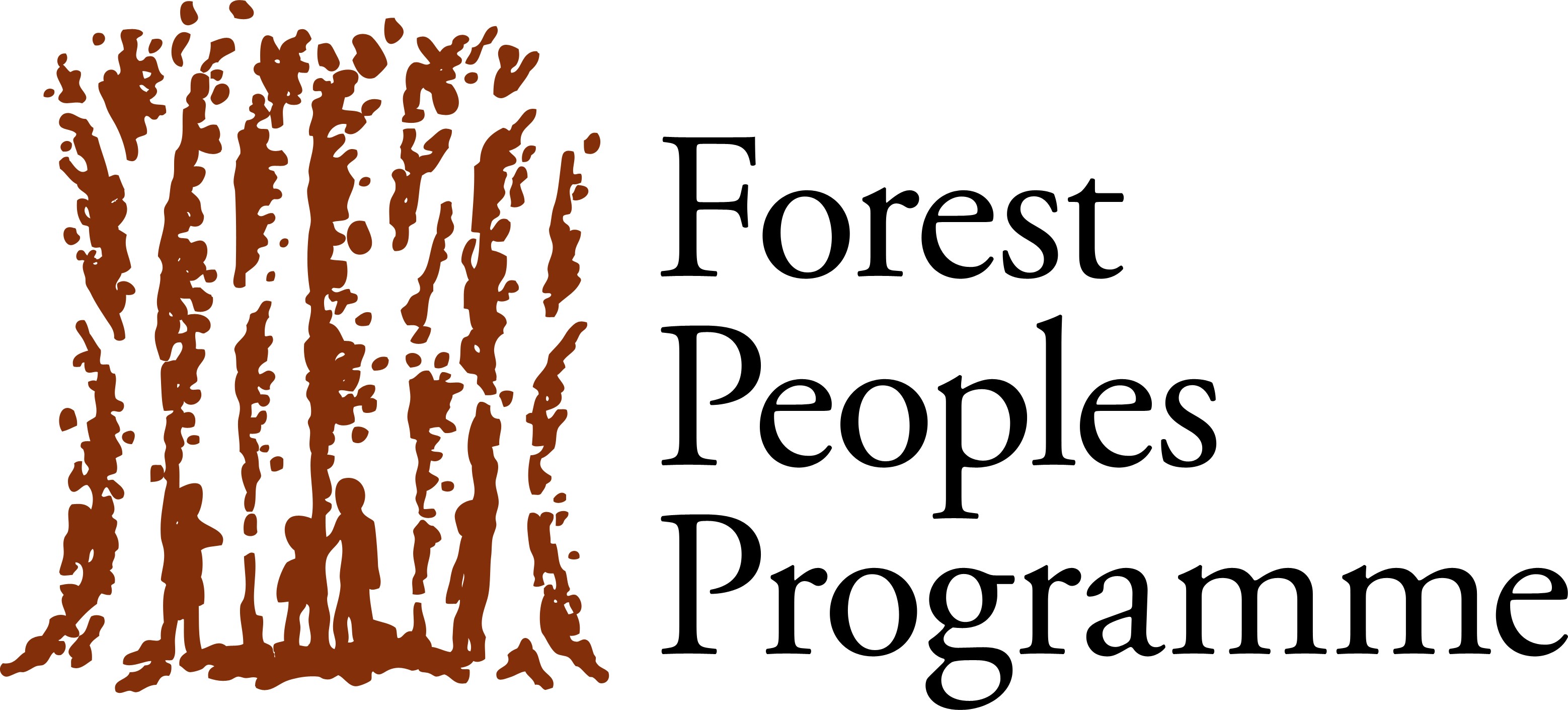






Mobilising Methods in Medical Anthropology 2022 Article Count: 7
The conference is over, but registered delegates can still catch up on sessions they missed until mid-April. Enter the conference platform, navigate the agenda and instead of live zooms, you'll find embedded recordings. We have 47 such recordings, with only a handful of panels/labs opting out from being recorded.
Delegates are also encouraged to view the film programme catalogue (PDF), and watch the films which remain available until end of Sunday 23rd January, via Whova.
See this page: Accessing RAIMed2022 sessions page for detailed instructions on how to set up a Whova account and get into RAIMed2022 sessions
Medical anthropology is a practice of continual empirical negotiation. Its investigative tools and means of analysis are often shaped according to methods in other fields and by dynamic transitions in the global health landscapes of infections and disease, as experienced in the current COVID 19 pandemic.
The ‘Mobilising Methods’ conference seeks to explore the creative and dynamic tensions that arise in conceptual and methodological terms between medical anthropologists and with those who work closely with us across a range of institutional and collaborative settings and diverse health conditions. The conference will focus on the challenges and opportunities of contemporary medical anthropology before, through and beyond COVID 19 that require engagement with translation, collaboration and communication. We encourage contributions reporting innovative methodologies and communication strategies.
Any queries should be directed to: raimed(at)nomadit.co.uk.
Anthropology, AI and the Future of Human Society Article Count: 11
Anthropology, AI and the Future of Human Society
Virtual Conference
6 -10 June 2022
Anthropology, AI and the Future of Human Society. AI has come to represent multiple causal drivers of change: amongst them artificial intelligence itself, space exploration, bio-tech and other emerging technologies. The implications for human society could hardly be more significant, and feed into a host of already contemporary concerns, such as sovereignty, economics, politics, reproduction and kinships, ethics and law, conflict and many more.
We wish to explore these issues from the broadest range of perspectives. From its foundation, anthropology has studied the complexity and variety of human society, and now we may turn to developing a sustained body of disciplinary understanding envisaging what may come in near, and more distant eras.
You can see a PDF version of the programme here.
The conference Whova page is here.
Informal enquiries may be made to info@therai.org.uk
Call for Panels opens 13 July 2021 and closes on 21 November 2021
Call for Papers opens 13 December 2021 and closes on 11 March 2022
Registration opens 11 April 2022
Conference Fees:
Fellows & Members: £90
Non-Fellows: £150
Concessions (students, unemployed and retired persons): £45
Delegates with low income from Low Income Countries (https://g2lm-lic.iza.org/call-phase-iv/list-of-lic/): £30
Co-organisers:
The British Science Fiction Association was established in 1958, with its first chair being science fiction writer, Brian Aldiss. It soon became a national association of readers, authors, critics, editors, booksellers and publishers with the aim of appreciating and encouraging science fiction in every form. Today, the BSFA is a vibrant and growing national organisation of science fiction writers, readers and scholars.
Future Anthropologies Network (FAN) was established as an outcome of the work of the Anthropology at the Edge of the Future Lab held at the 2014 EASA conference. The intention of the group is to continue our shared work in conceptualizing, debating, theorizing and practicing an engaged anthropology that puts futures at the centre of its agenda.

Future Anthropologies Network
Anthropology and Education Article Count: 14
MAJOR CONFERENCE:
ANTHROPOLOGY AND EDUCATION
25 June – 28 June 2024
Face to Face Conference at Senate House, University of London
Registration Now Open
The Royal Anthropological Institute is delighted to announce their next major conference that will take place at Senate House, University of London, 25 to 28 June 2024. The theme of the conference is Anthropology and Education, a focus that is sparked by the multiple contemporary challenges that we are faced with as a discipline as we seek to teach and educate.
We are equally convinced that the best way to face these challenges is to share best practice and new responses. For this reason, we are delighted to welcome as co-organisers the Education Commission of the International Union of Anthropological and Ethnological Sciences, the Teaching Anthropology Network of the European Association of Social Anthropologists, the Council on Anthropology and Education of the American Anthropological Association and the Association of Social Anthropologists.
The conference will be face to face only. However, in order to have as wide a possible a discussion as possible, we will be running a series of virtual events with our partners beforehand. These will be recorded and placed on our website in order to ensure their wide dissemination.
The details of the five plenary sessions can be seen here.
There will be distinct strands which we invite delegates to explore, of which we offer a brief explanation below. In no particular order of priority these are:
Indigenous Boarding Schools The historic phenomenon of boarding schools which take indigenous peoples away from their homelands for education is well discussed, notably with regard to Canada, Australia and New Zealand. However, there has been something of a return to this system in other countries. This strand invites panel proposals that will enable comment and discussion, as well as whether it will be possible to develop suggestions for best practice in this regard that might be adopted at an international level.
Anthropology in Pre-University Environments There are often attempts to teach anthropology at the school level, a notable example of which is the International Baccalaureate in Anthropology, a qualification that is well-established. Other initiatives may be pursued at the national level, both with regard to primary and secondary school, with varying degrees of success. We invite panels that seek to share experiences, both with regard to success and failure as to how anthropology can be strengthened in schools.
Translating Cultures and Diaspora Communities Anthropologists have long regarded themselves as translating cultures, but there is a striking more recent phenomenon, which is the way that Diaspora communities have started to codify for teaching purposes their hitherto predominantly oral cultures, often seeking formal recognition they do so from their host society. One instance of this is the Alevi community originally from Turkey, but there are many others. Proposals are welcome that seek to unravel the complexity of the pedagogic issues that come to the fore when such texts books have to be written where none have previously existed.
Anthropology, AI and Media The recent Covid lockdown made us all realise that traditional anthropology teaching will have to adapt and change if it is to remain and flourish in the classroom. This strand invites panels which seek to share this, and similar experiences in using innovative media in the classroom. In this connection, it may be noted that there will be a film stream at the conference, and panel proposals concerning film and pedagogy are also welcome.
Anthropology, Teaching and Museums One of the most interesting aspects of anthropology in recent decades is the gradual rapprochement between anthropology teaching and ethnographic museums. This relationship, having been in the second half of the twentieth century often rather distant, now is a central and creative part of our discipline. Panels are invited that reflect upon the implications of this growing proximity, and consider how we can build further on it.
Anthropology, Representation and Ethics The intensification of globalisation has rendered ethical understandings of the way that our discipline can be taught in need of reconsideration and revision. How is anthropology going to adapt and change as it becomes only one of a number of multiple actors in this complex process of mutual interaction?
Academic Teaching and Truth University teaching can be nothing without freedom of expression. Yet, from various parts of the world there appears to be increasing intolerance of a plurality of views. How can we as anthropologists contribute toward maintaining the integrity of our Higher Education institutions, wherever they may be found? Panel proposals are particularly invited that give instances of these potential problems, from whatever location.
Public Anthropology The interface between anthropology as an academic discipline and its public presence is one of the most crucial questions facing the subject today. How can it appeal to a wider, non-specialist audience? How can it teach the subject in a transparent way that ensures that it gains and attracts wider interest without compromising its intellectual message? Proposals are most welcome that will help us address this dilemma.
Anthropology in Non-Anthropology Departments All around the world, anthropologists may find a teaching position in a non-anthropology department, and likewise many universities may not have a distinct departmental structure. What implications does this have for individual careers, teaching and intellectual trajectories of the subject? Panels are invited that consider any aspect of this fascinating question as to the relationship between individual anthropologists, anthropology as a discipline and the wider structures of academia.
CONFERENCE SUMMARY DETAILS
DATES: 25 June – 28 June 2024
LOCATION: Senate House, University of London
CONFERENCE TYPE: In person
IMPORTANT DATES:
Call for Panels opens on 1 June 2023 and closes on 13 October 2023
Call for Papers opens on 1 November 2023 and closes on 26 January 2024
Registration opens on 26 February 2024
CONFERENCE FEES:
RAI Fellows; EASA Members; AAA Members; IUAES Members; ASA Members: £320
RAI Members: £390
Non-members: £420
Concessions (students; unemployed; retired persons): £150
Delegates with low income from low income countries (https://g2lm-lic.iza.org/call-phase-iv/list-of-lic/): £100
CO-ORGANISERS:
IUAES Commission on Anthropology and Education
EASA Teaching Anthropology Network
Council on Anthropology and Education, A section of the American Anthropological Association
Association of Social Anthropologists and ASA 2022: Anthropology Educates
Forensic Anthropology Article Count: 10
Forensic anthropologists use their expertise in cases of both suspicious and non-suspicious deaths ensuring that all possible evidence is recovered, whilst also ensuring dignity and respect for the deceased. This requires not only that they are skilled practitioners in forensic anthropology but that they also have an in-depth understanding of the legal framework of whichever country within which they work. The certification process provided by the RAI ensures that those working in this field can demonstrate their skill level, that they are fully mentored where appropriate and that they are working to standards set by the RAI and endorsed by the Forensic Regulator.
In this section:
-
What is Forensic Anthropology?
-
Forensic Anthropologist I (FAI)
-
Forensic Anthropologist II (FAII)
-
Forensic Anthropologist III (FAIII)
-
Chartered FAI
-
Certified FAII
-
Certified FAIII
-
Course Certification
-
Forensic Anthropology Event
-
BAFA
Certification of forensic practitioners has gained momentum in recent years although it has proven to be more challenging to achieve for the independent practitioner. This is true for the discipline of forensic anthropology and to address this, the British Association for Forensic Anthropology was formed in 2011. This association has undergone an intensive period of standard setting and validation in partnership with the Royal Anthropological Institute as its professional body. The RAI has a Forensic Anthropology Committee whose main role is to provide oversight of the professional certification process.
The work to date has included the development of:
- Practitioner Levels
- Code of Practice for Forensic Anthropology
- Continuing Professional Development Framework
- Examination Procedures
- A robust curriculum and
- An extensive examination process approved by the RAI.
The certification process aims to provide two things; a transparent, fit-for-purpose guide to end users on the required skill set of the forensic anthropologist and a career pathway for forensic anthropology professionals of the future. The certification process and its development will be presented within the framework of appropriate scientific quality standards now being demanded by the Forensic Science Regulator and criminal justice systems.
Certification of forensic anthropologists are separated into 3 categories which permit police, judiciary or other clients to select a level of experience that is suitable for their needs and to identify geographically local capabilities.
- Chartered Forensic Anthropologist (FAI) - The highest level of certification and is chartered status. These are highly experienced practitioners who have court room experience.
- Forensic Anthropologist II - This level includes practitioners who have evidenced competence in both their practical and theoretical knowledge of forensic anthropology. They may not yet have given evidence in a courtroom but they will be mentored by an FAI to assist them in this regard.
- Forensic Anthropologist III - The practitioners at this level have evidenced that they have some experience and knowledge in the field of forensic anthropology. They may not have yet had real field experience but they will be mentored by either an FAI or an FAII practitioner.
A list of those already certified as Chartered Forensic Anthropologists (FAI) is available here
A list of those already certified as FAII is available here
A list of those already certified as FAIII is available here
Forensic Science Regulator legal guidance
BAFA small grant scheme
BAFA has recently launched a new small-grants scheme. The scheme comprises of a Research grant (£500), a CPD grant (£200) and an essay prize (£200). You can find out more about the application process by contacting BAFA via their website.
If you have any additional queries, please communicate these to the examination board via the email address fac@therai.org.uk.
Jobs & Opportunities Article Count: 0
These pages list vacancies in anthropology published in the RAI’s journal Anthropology Today; and opportunities for short-term attachment to the RAI as a Visiting Scholar. To post a vacancy announcement in Anthropology Today, contact atadverts@gmail.com.
Support Us Article Count: 5

The RAI is an entirely independent charity which has been in existence for nearly 150 years, thanks to the generosity of its benefactors. Donations and legacies allow us to sponsor cutting edge anthropological research, which is hard to finance by other means. Our benefactors also enable us to give much needed funds to help final year research students complete their PhDs, give out prizes for outstanding scholarship and conserve our invaluable archival, photo and film collections for future generations. We welcome any contributions, large or small, towards these endeavours. We also welcome contributions to our fundraising for our future flagship project, the creation of an RAI Research Centre. Anthropology is a discipline that tackles issues of universal concern such as ‘human nature’, gender and sexuality, health, nutrition, indigenous rights, globalisation, multiculturalism and development. It has a key role to play in the education of globally informed citizens, as well as practical applications in areas such as government, medicine, tourism, international aid and law. We believe its continued practice is of vital importance.
If you are interested in giving us a donation, or leaving us a gift in your will, we would love to hear from you. Enquiries can be made in confidence to the Director, Dr David Shankland on david.shankland@therai.org.uk, +44 (0)20 7387 0455, 50 Fitzroy Street, London, W1T 5BT.
More specific information about leaving us a gift in your will is available here.
Of course, one of the best ways to support us is to join as a Member or Fellow of the Institute and play an active part in our community. For more information about joining us visit our Joining pages. With donations over £2000 you have the option of a Life Fellowship of the RAI gratis, so that you can keep in touch with us and our work. Fellowship includes print and online subscription to our journals, the Journal of the Royal Anthropological Institute and Anthropology Today, as well as reduced admission to RAI events and free access to the archives.
What could your gift achieve?
Your donation or legacy could contribute to the charitable work of the Institute in various ways.

A gift of £50 could purchase a book for the Anthropology Library held at the British Museum. The Anthropology Library is free and open to members of the public for reference. RAI Fellows can borrow books. The library is one of the largest and broadest collections of anthropological reference materials in the world.
A gift of £200 could purchase a day of an archivist’s time to help assist the Royal Anthropological Institute with the important task of archiving and digitalising our extensive collections. This is an area where support is always appreciated and can make a significant difference. We have several important collections in need of archiving, as well as thousands of rare photographs in need of digitisation. These collections are not just of importance in terms of historical record, but can have direct contemporary relevance, for example we are currently revisiting the work of our blood group research committee from the 1950s (Mourant).
Donations allow us to expand the proportion of collections easily accessible to researchers. For example, an endowment trust is currently paying for an archivist to catalogue and make available to the public the collections of W.B. Fagg in the Fagg Library held on the premises.
A gift of £500 could enable us to offer a travel bursary for a filmmaker to attend our biennial RAI Film Festival.

A gift of £1000 could enable us to buy much needed equipment to assist the work of the archivist, for example specialist equipment to process larger scale items such as ethnographic drawings and maps.

A gift of £3000 could sponsor a dedicated seminar series, or themed film screening series.
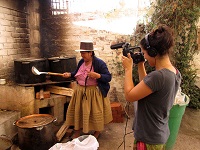
A gift of £5000 could sponsor a small research grant, enabling a researcher to conduct a piece of contemporary and relevant fieldwork that they are unable to finance by other means. For example, a gift is currently allowing us to sponsor an exploratory research trip to the Caucasus, Armenia by an anthropologist working in collaboration with the World Land Trust, to explore the impact of conservation programmes on local communities.
A gift of £25,000 could provide an Urgent Anthropology Fellowship, which focuses on research on disappearing indigenous cultures, languages, and ecologies. This unique scheme, privately funded by anthropologists (founding sponsor: Dr George Appell) has been running since 1995. For a list of past Urgent Anthropology Fellows and their work click here.
A gift of £200,000 would enable us to offer a new initiative of a fully costed post-doc Fellowship for three years, based at the Institute. With opportunities for full time paid academic positions increasingly restricted for PhD graduates, a contribution to this scheme could make a real difference. The RAI has an emphasis on facilitating publicly engaged anthropology and applications to the scheme would be required to demonstrate the contemporary relevance and importance of their project.
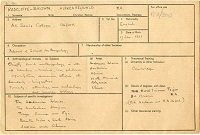
A gift of £2,000,000 could create an endowed fund for anthropological research. Endowed funds are when the capital of the gift is invested and produces an annual income for a specific activity. Endowed funds have been essential to the ongoing existence and work of the Institute. Notable endowments include the Radcliffe Brown Trust, Emslie Horniman Anthropological Trust, and the Esperanza Trust which support anthropological fieldwork and research at various levels. For more information about our research grants see here.
A gift of £10.000,000 would enable us to create a new RAI Research centre. This is part of a long-term vision of the Royal Anthropological Institute to create an independent space to allow for cutting-edge, publicly relevant and timely research.
Publications Article Count: 2
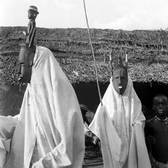 The RAI runs an active programme of academic publication in anthropology. It publishes the Journal of the Royal Anthropological Institute, Anthropology Today, Anthropology and Photography, Anthropology and Art and Teaching Anthropology, and books and other publications from time to time. It also publishes the Anthropological Index Online.
The RAI runs an active programme of academic publication in anthropology. It publishes the Journal of the Royal Anthropological Institute, Anthropology Today, Anthropology and Photography, Anthropology and Art and Teaching Anthropology, and books and other publications from time to time. It also publishes the Anthropological Index Online.
In this section:
-
Journal of the Royal Anthropological Institute
-
JRAI Special Issue
-
Anthropology Today
-
Anthropology and Art
-
Anthropology and Photography
-
Occasional Papers
-
RAI Book Series
-
RAI Country Series
-
Teaching Anthropology
JRAI Special Issue Article Count: 1
The RAI Photographic Library Article Count: 4
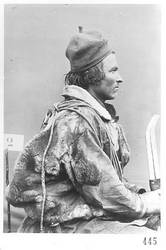 The RAI photographic library is unique. Consisting of over 75,000 historic prints, negatives, lantern-slides, drawings, paintings and other images, the earliest of which date from the 1860s, it provides a scholarly service to a large number of academic researchers, students and responsible commercial users.
The RAI photographic library is unique. Consisting of over 75,000 historic prints, negatives, lantern-slides, drawings, paintings and other images, the earliest of which date from the 1860s, it provides a scholarly service to a large number of academic researchers, students and responsible commercial users.
It contributes strongly to public awareness of the RAI, and provides a practical interface between the Institute and a wide range of audiences and disciplines. The anthropology of visual culture is becoming increasingly central to the discipline as a whole, and interest has correspondingly grown. The material contained in the photographic library is highly relevant to contemporary, as well as historical, concerns.
From time to time, the photographic library provides a focus for exhibitions, events and publications of interest to visual anthropologists and historians of anthropology. Enquiries should be addressed to the Archivist.
In this section:
Photographs Article Count: 5
About the RAI Article Count: 1
The Royal Anthropological Institute of Great Britain and Ireland (RAI) is the world's longest-established scholarly association dedicated to the furtherance of anthropology (the study of humankind) in its broadest and most inclusive sense. The Institute is a non-profit-making registered charity and is entirely independent, with a Director and a small staff accountable to the Council, which in turn is elected annually from the Fellowship. It has a Royal Patron in the person of HRH The Duke of Gloucester KG, GCVO.
Governance Article Count: 10
The Institute is a non-profit-making registered charity and is entirely independent, with a Director and a small staff accountable to the Council, which in turn is elected annually from the Fellowship. A list of the past Presidents is available here. You can find a list of current Council members here.
Specialist interests in anthropology are represented through Committees. A list of current Committees can be found here.
Staff Article Count: 7
|
|
Director David Shankland MA, PhD email |
|
Managing Editor, Anthropological Index Online |
 |
Assistant Director (Finance & Personnel) Christine M.R. Patel BA email |
Assistant Editor, Anthropological Index Online |
|
|
|
Assistant Director (Administration) |
 |
|
 |
Office Manager & Conference Assistant |
 |
Forensic Anthropology & Fundraising Officer |
|
Publications Officer Honor Gitsham MA email |
 |
Archivist & Photo Curator Andrei Nacu email |
|
|
Editor, Anthropology Today Gustaaf Houtman BA, PhD email |
 |
Archive Assistant Catherine Atkinson BA, MLitt email |
|
 |
Film Officer & Festival Director |
 |
Film Officer & Festival Director Hatty Frances Bell MA email |
 |
Education & Communications Officer Sophie Cowling MA email |
|
|
Honorary Staff |
|
|
|
RAI Announcements Article Count: 26
Order from us Article Count: 3
If you are interested in joining the Royal Anthropological Institute and receiving the journals please go to the Joining section.
If you are interested in hiring or purchasing a film please go to the Film section.
If you are interested in finding a photograph for publication or exhibition please contact the Archivist.
If you are interested in ordering photocopies of an item from the archives please contact the Archivist.
If you are interested in a customised bibliography from the Anthropological Index Online please contact the AIO.
If you are interested in Educational brochures please go to the Education Publications section.
If you are interested in Occasional Papers please go to the Occasional Papers page.
Annual Report Article Count: 23
You can see the Annual Reports in full by clicking on the pdfs.
aio Article Count: 4

PDF (2 MB)
The Anthropological Index Online (AIO) is a comprehensive, user-friendly online bibliography of anthropology-related journals held in the Anthropology Library and Research Centre at the British Museum, London. It provides an indispensable service for libraries and for individual researchers, teachers and students of anthropology and archaeology throughout the world. Supported for many years by grants from the W.B. Fagg Charitable Trust, the AIO now aims to be financially self-sustaining. For full information and to access the Index, click here.
The Anthropological Index Online (AIO) proudly announces a new service for its users. As of January 2012, anyone using AIO will be able to search for RAI films online via keywords, directors or area of coverage. Default searches will show simultaneously both articles and films. Users will have the choice of searching films only. Film titles will be marked with a distinctive icon that identifies them among articles appearing on the same page. This new service is the result of a collaborative project between AIO and the Film section of the RAI that aims at highlighting its resources among fellows, subscribers, and independent users. Film lists will be updated twice a year.
In this section:
Subscription Article Count: 2

Access to the AIO is currently free to individual users. Institutions (except those in developing countries) are asked to pay a subscription. The subscription fee is currently £315 plus VAT per year in the UK and EU or US$550 per year overseas.
Many libraries have been regular subscribers for years. We trust that individual anthropologists as well as librarians and institution heads will continue to support this scheme and that institutions who are not yet subscribers will see a benefit in joining the service.
Yes, I would like to subscribe
The data is © Copyright RAI and use is permitted for educational non-commercial purposes (including private study). Commercial institutions wishing to use Anthropological Index Online are asked to contact the RAI to arrange access.
Archives & Manuscripts Article Count: 0
 In this section:
In this section:
The RAI is the custodian of a rich collection of unpublished archival and manuscript materials, most of which is available to bona-fide scholars for research purposes. Enquiries should be addressed to the Archives Officer.
The policies and guidelines for the Archives and Manuscripts department can be found here.
Visitors to the collection now have full access to the Wiley Digital Archive resource inhouse.
Archive Contents Article Count: 216
The list below is classified by alphabetical order.
Manuscript Contents Article Count: 417
The list below is classified by alphabetical order. You can also view the full list by reference order. All material produced within the most recent thirty years has been omitted from this website, and there may be restrictions on viewing certain items. Please consult the archivist for further detail.
Obituaries Article Count: 121
The RAI online obituaries project comprises biographical essays covering the life and work of deceased and distinguished anthropologists—usually though not necessarily RAI Fellows. RAI obituaries are designed to provide basic information about the deceased (name, dates and places of birth and death, affiliations, major publications, immediate survivors) for the record, as well as more personal remembrances, and to serve as a scholarly resource and RAI archive. The project is supervised by the Manuscripts and Archives Committee. RAI obituaries are solicited by the Obituaries Editor and published on the Institute’s website. This page is the Institute’s major portal for information about deaths of our colleagues. As a service to the Institute, please notify the RAI Obituaries Editor as soon as you learn of a death. Suggestions for possible obituarists are welcome.
Please click on a name below to read the obituary.
- Allen, N.J.
- Archer, William
- Arens, William
- Argyle, William Johnson ‘John’
- Aull Davies, Charlotte
- Balfour, Henry
- Banks, Marcus (2)
- Banton, Michael
- Barnard, Alan
- Barnes, John Arundel
- Barnicot, Nigel
- Barth, Frederick
- Bascom, William R.
- Beddoe, John
- Blackwood, Beatrice Mary
- Boissevain, Jeremy
- Braunholtz, Hermann Justus
- Buhler, Alfred
- Burland, Cottie
- Bushnell, Geoffrey
- Busk, George
- Byron, Reginald
- Charsley, Simon Robert
- Colson, Elizabeth
- Conklin, Harold Colyer
- Cunningham, Daniel John
- Daniel, Glyn
- Dark, Philip John Crosskey
- David, Nicholas (2)
- Davis, John
- Day, Michael Herbert
- Dennett, Terry
- Devisch, Renaat
- Douglas, Mary
- Edgar, Iain
- Elkin, A.P.
- Ennew, Judith
- Epstein, Trude Scarlett
- Evans, John
- Evans-Pritchard, Edward Evan
- Fleure, Herbert John
- Flood, Glynn
- Flower, William
- Forde, Daryll
- Fortes, Meyer
- Fortune, Reo Franklin
- Frankenberg, Ronnie
- Fraser Roberts, John
- Freedman, Maurice
- Galton, Francis
- Garrod, Dorothy Annie Elizabeth
- Gell, Alfred
- Gellner, Ernest
- Gluckman, Max
- Goldman, Philip
- Gomila, Jacques
- Goody, Esther
- Goody, Jack
- Gowland, William
- Graeber, David (2, 3)
- Grau, Andrée
- Gullick, Charles
- Haddon, Alfred Cort
- Harris, Olivia
- Harris, Rosemary
- Harrison, Geoffrey Ainsworth
- Harrisson, Tom
- Hartman, Tod
- Horton, Robin
- Hutton, John Henry
- Huxley, Francis
- im Thurn, Everard
- Joyce, Thomas Athol
- Kaberry, Phyllis
- Keith, Arthur
- Kemp, Jeremy
- Kesby, John D.
- Kirkpatrick, Brownlee J.
- Latour, Bruno
- Leach, Edmund
- Llobera, Josep Ramon
- Loizos, Peter
- Lubbock, Sir John 1st Lord Avebury
- Macalister, Alexander
- Mahmood, Saba
- Maudslay, Alfred Percival
- McKnight, David
- Mead, Margaret
- Merriam, Alan P.
- Middleton, John Francis Marchment
- Mills, James Philip
- Mintz, Sidney W.
- Moore, Sally Falk
- Myres, John Linton
- Needham, Rodney
- Nicolaisen, Johannes
- Oakley, Kenneth Page
- Paine, Robert
- Palmer, John
- Paluch, Andrzej K.
- Peake, Harold John Edward
- Peel, JDY
- Pericot Garcia, Don Luis
- Poignant, Rozlyn
- Powell, Henry Arthur
- Prince Peter of Greece and Denmark
- Radcliffe-Brown, Alfred Reginald
- Raglan, Lord
- Read, Charles Hercules
- Redmayne, Alison
- Riches, David
- Richards, Audrey
- Ridgeway, William
- Risley, Herbert
- Rivers, William Halse Rivers
- Rosaldo, Michelle Zimbalist
- Rudler, Frederick William
- Ruel, Malcolm
- Rutten, Mario
- Saumarez Smith, Richard
- Schapera, Isaac
- Seligman, Charles Gabriel
- Signorelli, Amalia
- Smith, Edwin Williams
- Southall, Aidan
- Spencer, Paul
- Stanner, W.E.H.
- Stirling, Paul (2)
- Street, Brian
- Stuchlik, Milan
- Sunderland, Eric
- Swift, Michael G.
- Tapp, Nicholas
- Tiego, Yoshida
- Thompson, Eric
- Townsend, Norman A.
- Turner, Victor
- Turton, Andrew
- Turton, David
- Tylor, Edward Burnett
- Utsi, Mikel
- von Fürer-Haimendorf, Christoph
- Waechter, John
- Ward, Barbara
- Weiner, Joseph S.
- Werbner, Pnina (2)
- Wilson, Monica
An excellent biographical resource by Alan Macfarlane featuring interviews and films of notable deceased and living anthropologists may be found via the following link http://www.alanmacfarlane.com/ancestors/anthropology.htm
RAI Events Article Count: 1
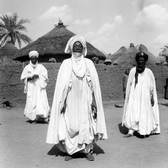 These pages list events run by the RAI, or to which the RAI contributes substantively. For information on events in anthropology run by other organisations worldwide, click here.
These pages list events run by the RAI, or to which the RAI contributes substantively. For information on events in anthropology run by other organisations worldwide, click here.
Event Recordings Article Count: 9
The following RAI lectures have been recorded and are available online to listen to or download. Videos of other RAI events are available on our YouTube channel here.
Education Article Count: 0
 The Royal Anthropological Institute’s Education programme, Discover Anthropology, has been set up to develop actions and strategies to inform teachers and young people about anthropology as a university subject, and to bring the subject more generally into pre-university education. Anthropology, the study of what it means to be human across different societies, cultures and histories, is not currently taught in schools and colleges in the UK and compared to other social sciences, anthropology undergraduate degrees attract fewer students from widening participation target groups. Yet the discipline of anthropology has a distinctive, and vital, contribution to make to understanding the world today. Anthropology offers a deep understanding of how different societies work, how people live, their beliefs, customs, ideas, prejudices and aspirations. In an era when global understanding and recognition of diverse ways of seeing the world are of critical social, political and economic importance, anthropology has a central role to play in education.
The Royal Anthropological Institute’s Education programme, Discover Anthropology, has been set up to develop actions and strategies to inform teachers and young people about anthropology as a university subject, and to bring the subject more generally into pre-university education. Anthropology, the study of what it means to be human across different societies, cultures and histories, is not currently taught in schools and colleges in the UK and compared to other social sciences, anthropology undergraduate degrees attract fewer students from widening participation target groups. Yet the discipline of anthropology has a distinctive, and vital, contribution to make to understanding the world today. Anthropology offers a deep understanding of how different societies work, how people live, their beliefs, customs, ideas, prejudices and aspirations. In an era when global understanding and recognition of diverse ways of seeing the world are of critical social, political and economic importance, anthropology has a central role to play in education.
The Discover Anthropology education programme aims to 1) provide good quality accessible information for students considering studying anthropology at university 2) to create a series of regular events and activities for young people and teachers and 3) produce resources for teachers that draw upon the insights of anthropology. The programme will be represented by a dedicated website shortly. From 2005-2006 the programme was funded through the AimHigher National Activity programme. From 2007-2010 the programme was funded by the Economics and Social Research Council.
For more information please contact our Education Officer.
Education Article Count: 1
The Royal Anthropological Institute’s Education programme, Discover Anthropology, has been set up to develop actions and strategies to inform teachers and young people about anthropology as a university subject, and to bring the subject more generally into pre-university education. Anthropology, the study of what it means to be human across different societies, cultures and histories, is not currently taught in schools and colleges in the UK and compared to other social sciences, anthropology undergraduate degrees attract fewer students from widening participation target groups. Yet the discipline of anthropology has a distinctive, and vital, contribution to make to understanding the world today. Anthropology offers a deep understanding of how different societies work, how people live, their beliefs, customs, ideas, prejudices and aspirations. In an era when global understanding and recognition of diverse ways of seeing the world are of critical social, political and economic importance, anthropology has a central role to play in education.
The Discover Anthropology education programme aims to 1) provide good quality accessible information for students considering studying anthropology at university 2) to create a series of regular events and activities for young people and teachers and 3) produce resources for teachers that draw upon the insights of anthropology. The programme will be represented by a dedicated website shortly. From 2005-2006 the programme was funded through the AimHigher National Activity programme. From 2007-2010 the programme was funded by the Economics and Social Research Council.
For more information please contact our Education Officer.
Online Courses Article Count: 19
Online Courses
The RAI is proud to present our new course programme provided by academics at the top of their field. These courses take place online to ensure maximum accessibility and cover topics that are both high in demand and appealing to the general public. With two programme strands: Continuous Professional Development and General Short Courses, the RAI aims to meet the needs of anthropologists and/or professionals requiring anthropological skills in their careers, alongside those interested in finding out more about anthropology as beginners.
In order to have access to online resources all those registered for the online courses will be given Student Fellowship of the RAI free of charge.
If you have a question, please visit our FAQ page
You can find out specific information about each course below.
If the course you are interested in is yet to release a date, please register your interest and we will contact you once we have an official date and time.
You can book a space on one of our courses here. Please select the course you are interested in through a drop down menu. Once you have completed this form, you will be taken to a payment information page where you have the option to pay via paypal or request an invoice via email.
If you are already an enrolled student, you can access our Moodle platform here:
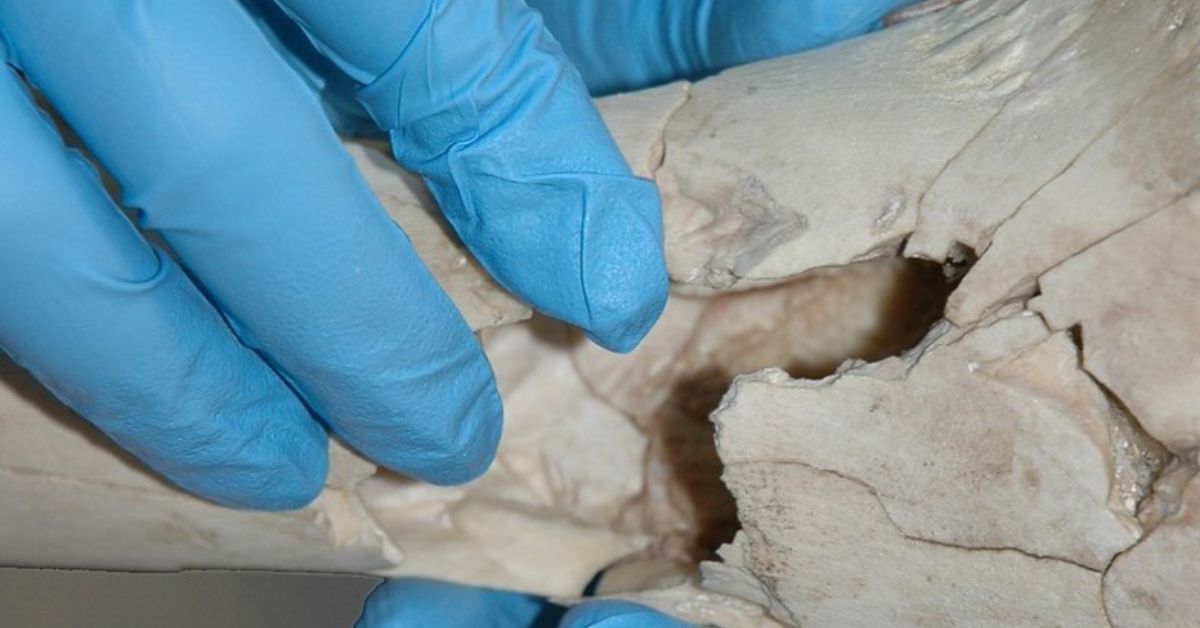 Insights into the discipline of forensic anthropology and human identification
Insights into the discipline of forensic anthropology and human identification Start date: April 2024
Price: £245
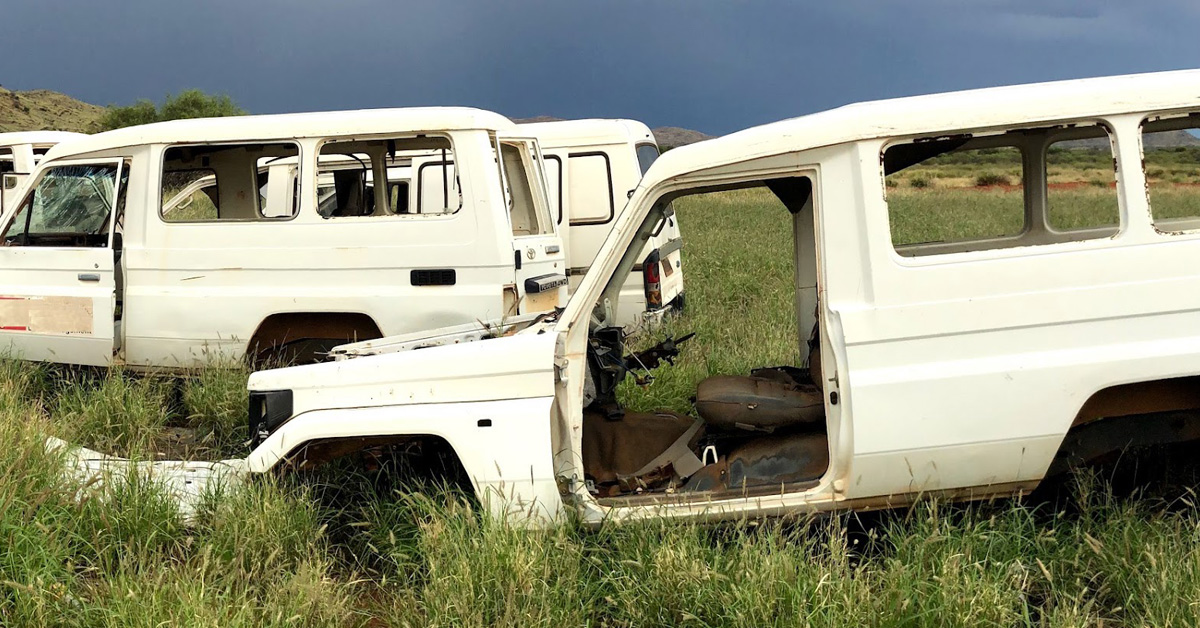 Concepts, terms and definitions
Concepts, terms and definitions Start date: July 2023
Price: A$450/£245
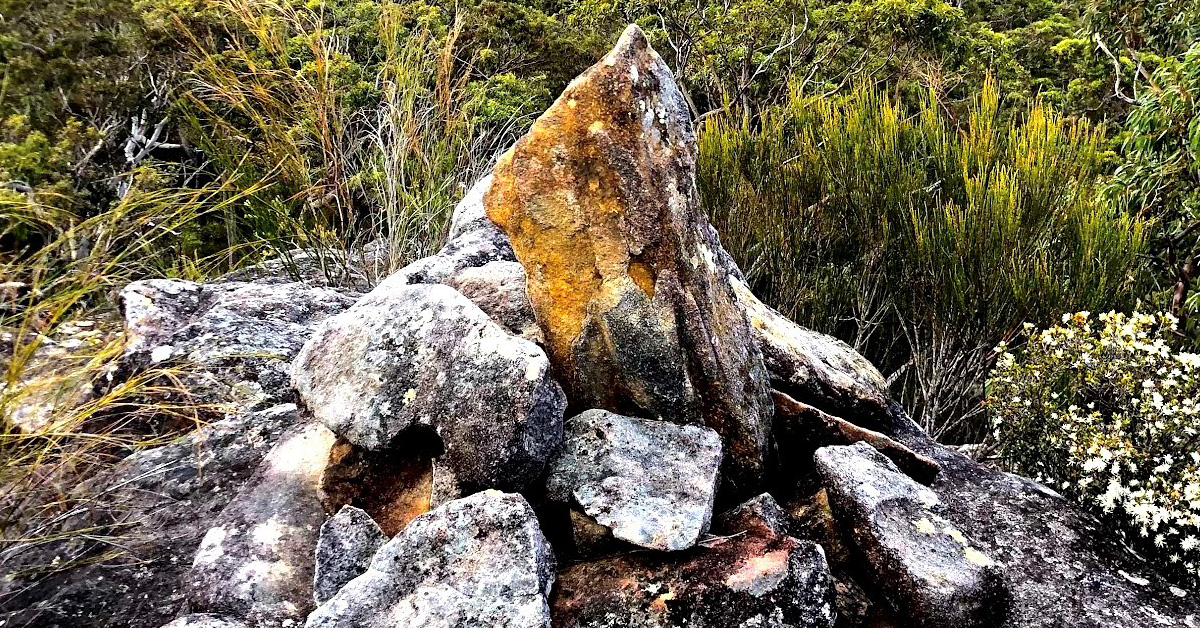 Identifying Sacred Sites and Sacred Objects
Identifying Sacred Sites and Sacred ObjectsStart date: September 2023
Price: A$450/ £245
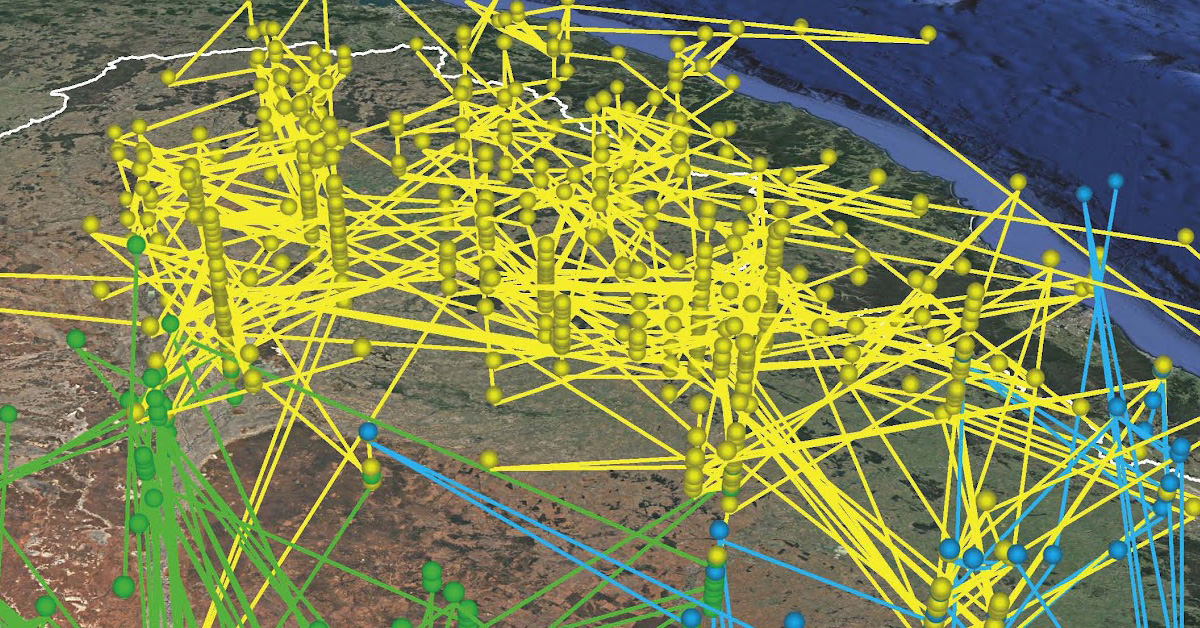 Identifying Populations, Cultures, and Territories
Identifying Populations, Cultures, and TerritoriesStart date: February 2024
Price: A$450/ £245
 Start date: TBC 2024
Start date: TBC 2024Price: from £245
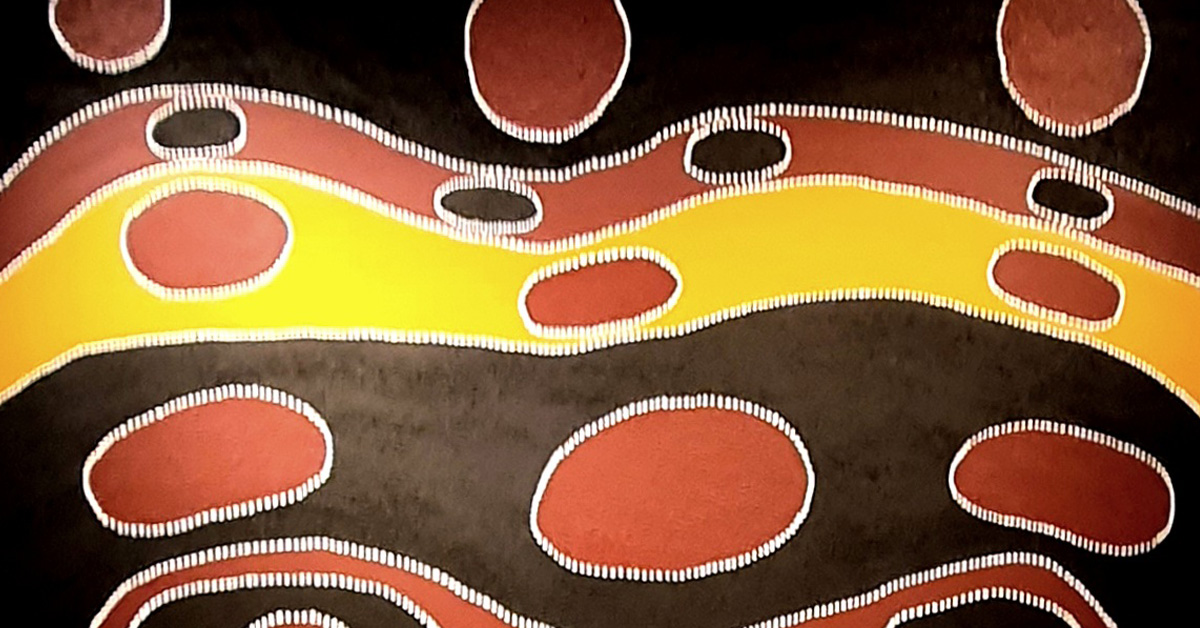 Start date: September 2023
Start date: September 2023Price: £245
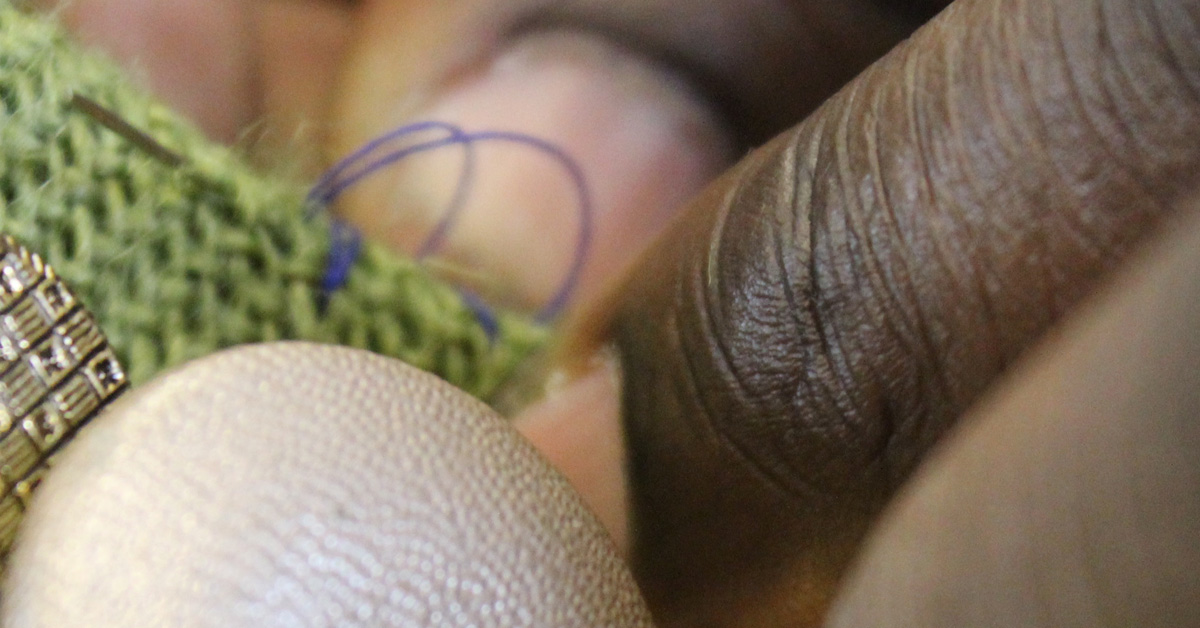 Start date: January 2024
Start date: January 2024Price: £245
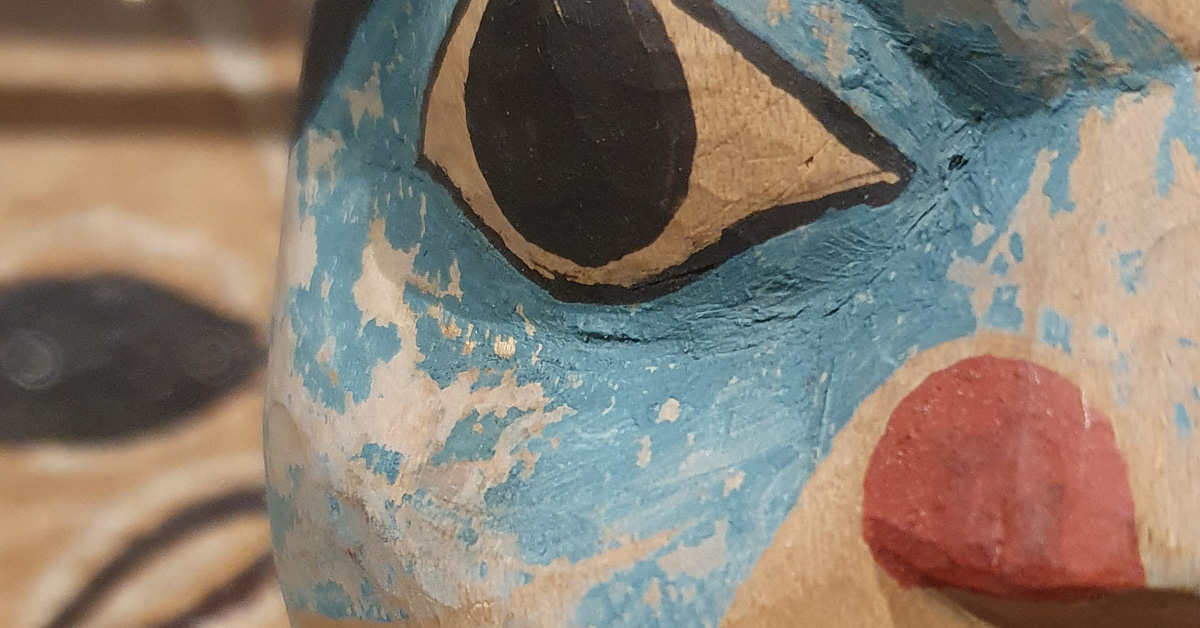 Start date: January 2024
Start date: January 2024Price: £245
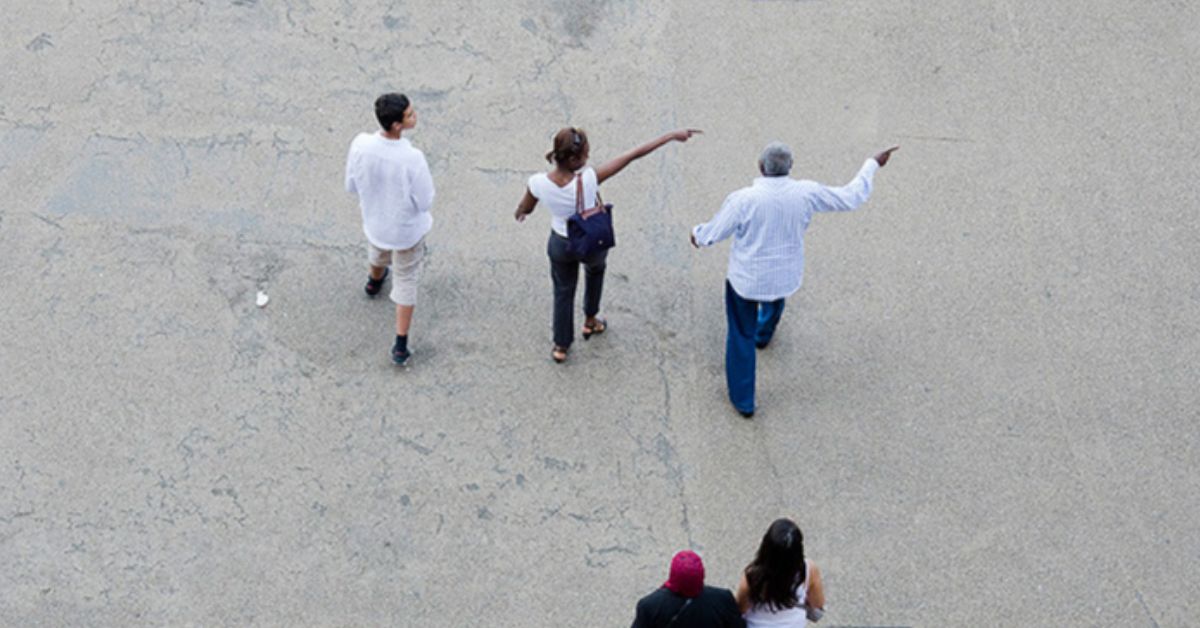 Start date: 2024 TBC
Start date: 2024 TBCPrice: £150
 Start date: 2024 TBC
Start date: 2024 TBCPrice: £245
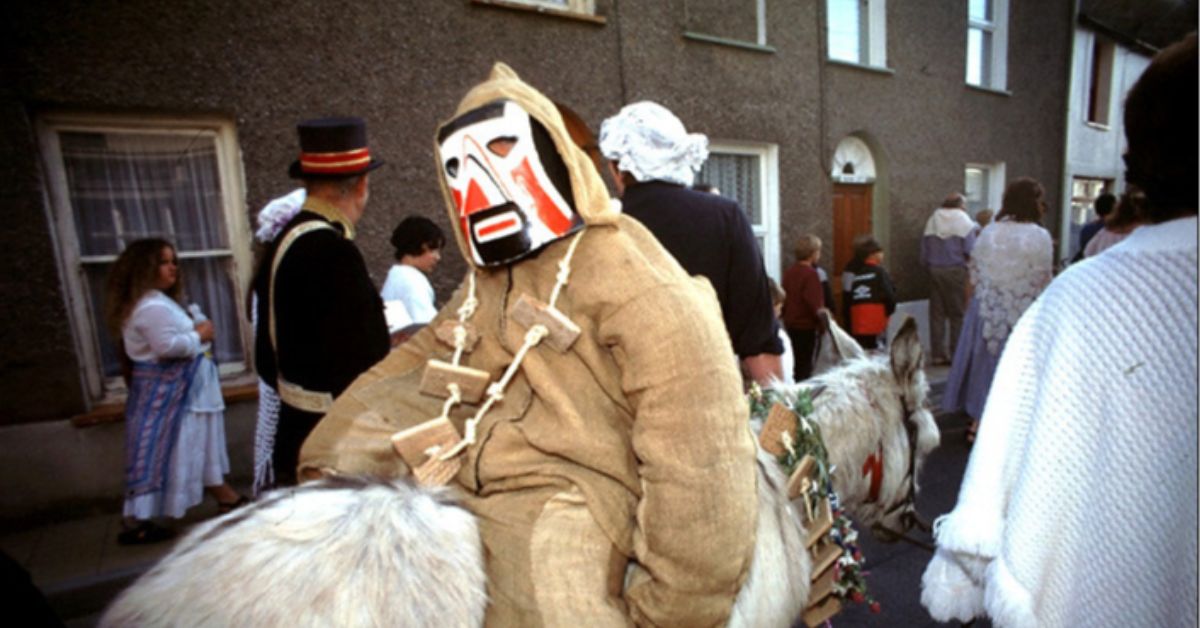 Start date: 2024 TBC
Start date: 2024 TBCPrice: From £50 (bursaries available)
Anthropology Library Article Count: 0
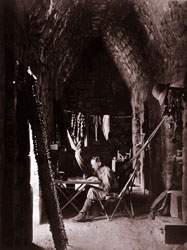
The Anthropology Library and Research Centre, located within the British Museum, incorporates the original Library of the Royal Anthropological Institute (RAI) and the British Museum’s Ethnography Library, and is effectively Britain’s national anthropology library. The RAI contributes substantially to Library acquisitions and staffing. International exchange arrangements are also in place with scholarly institutions, under which the Library receives publications in exchange for RAI journals.
The Library is open to the public for reference and research. RAI Fellows have the special privilege of being able to borrow books from the library. Fellows are encouraged to make use of the Library’s wide ranging resources. The online catalogue can be searched here.
Both the RAI and the Museum’s Department of Africa, Oceania and the Americas host seminars and other events in the Library. The Department’s Collections Enquiries service is also located within the Library.
Library opening hours are 10.00-17.00 Monday, Tuesday, Wednesday, Friday and 12.00-17.00 on Thursday.
The Collection
The Library’s holdings comprise more than 120,000 books and pamphlets and 4,000 journal titles, of which around 1,500 are current. The journal collection, which is indexed by the Anthropological Index Online, is particularly strong for Latin America, Eastern Europe, Africa and Asia. The Library also contains maps, newsletters, reports and a significant pictorial collection.
Geographically the scope is worldwide, with particular emphasis on the Commonwealth, Eastern Europe and the Americas, notably Mesoamerica. All aspects of anthropology are covered: cultural (with an emphasis on material culture) and biological anthropology, archaeology and linguistics, together with related fields such as history, sociology, description and travel.
Fellows and Members are encouraged to make use of the Library’s wide ranging resources at the Anthropology Library and Research Centre at the British Museum.
Staff
Ted Goodliffe is the RAI's Library Officer and attends the Library on two days a week. Please contact him if you wish to discuss or comment on any aspect of the Library's services or policies or if you have any bibliographic or information enquiries. For urgent matters in his absence please contact the Senior Librarian, Jan Ayres.
RAI's Library Officer: Ted Goodliffe Telephone: +44 (0)20 7323 8067 Email Ted Goodliffe
Anthropology Library Article Count: 2
 |
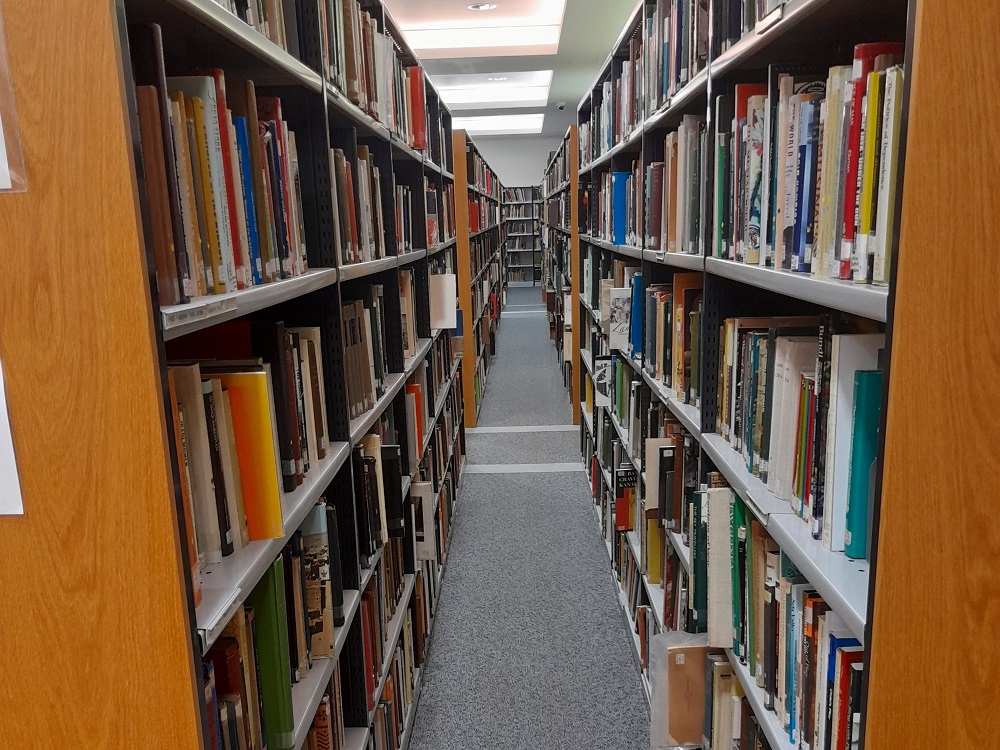 |
 |
 |
The Anthropology Library and Research Centre, located within the British Museum, incorporates the original Library of the Royal Anthropological Institute (RAI) and the British Museum’s Ethnography Library, and is effectively Britain’s national anthropology library. The RAI contributes substantially to Library acquisitions and staffing. International exchange arrangements are also in place with scholarly institutions, under which the Library receives publications in exchange for RAI journals.
The Library is open to the public for reference and research. RAI Fellows have the special privilege of being able to borrow books from the library. Fellows are encouraged to make use of the Library’s wide ranging resources.
The Online Catalogue can be searched here.
Both the RAI and the Museum’s Department of Africa, Oceania and the Americas host seminars and other events in the Library. The Department’s Collections Enquiries service is also located within the Library.
Library opening hours are 10.00-17.00 Monday, Tuesday, Wednesday, Friday and 13.00-17.00 on Thursday.
Committees Article Count: 44
Committees of the RAI
Medical Anthropology Committee
Manuscripts and Archives Committee
Anthropological Index Online Committee
Forensic Anthropology Committee
Ethnomusicology and Ethnochoreology Committee
Environment and Anthropology Committee
Anthropologists and the Environment Article Count: 94
The Anthropology and the Environment Committee of the RAI have put together a list of anthropologists who are interested in environmental issues. This list is a resource for other anthropologists and for those outside anthropology looking for a particular expertise.
If you are interested in being included please reply to admin@therai.org.uk and include:
- Name
- Affiliation
- Contact details
- Statement of interest
- Geographical/topical area of interest
Privacy Policy Article Count: 12
Privacy Notice for Royal Anthropological Institute
This will be updated from time to time as appropriate.

